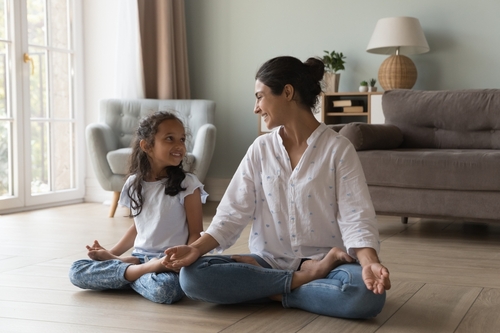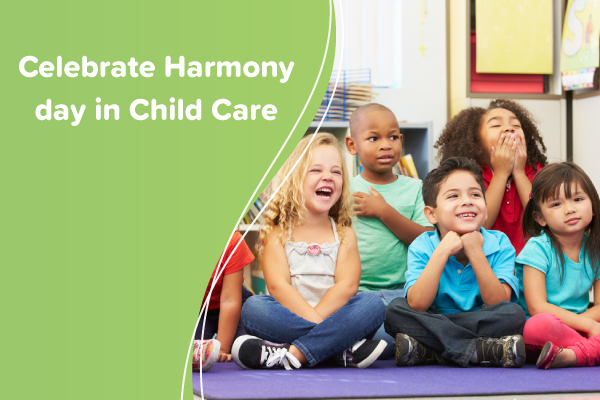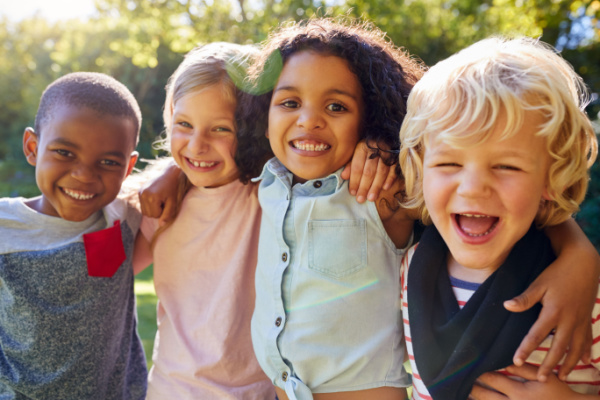The mental health of children is critical to their overall wellbeing. It not only impacts their social, emotional, and cognitive development but also determines their ability to learn and form healthy relationships.
A crucial aspect of mental health for children is resilience. Building resilience in children is essential for their optimal development and wellbeing.

What does resilience mean?
It is the ability to adapt and cope with adversity, stress, and life’s challenges.
Setbacks are inevitable throughout life, but when we build resilience in children, we equip them with the tools they need to overcome obstacles, manage stress, and thrive in life.
It is typically not something people are born with; rather, it is a skill that can be learned and developed through positive experiences, supportive relationships, and effective coping strategies.
Resilience: identifying its need and benefits
The experts at Resilient Youth Australia explain that by building resilience in young people, we can empower them to be able to learn from their mistakes and to understand that failing is okay and in fact an integral part of the learning journey.
It’s worthwhile for early childhood educators to know how to identify resilience in children, as well as know when building it might be especially important. Children with high levels of resilience tend to have a positive outlook on life, a sense of purpose, and strong problem-solving skills. They are more likely to have healthy relationships with others, exhibit good self-esteem, and demonstrate empathy and compassion towards others.
Children with high resilience also tend to be more optimistic, curious, and adventurous. They may be keen to take a chance on trying new things and can bounce back quickly from setbacks.
Children with low resilience, on the other hand, may struggle with self-esteem, have difficulty regulating their emotions, and experience more anxiety and stress in their daily lives. This can in turn impact their ability to learn effectively.
Further, children who need support in building resilience may have difficulty adapting to change, struggle with problem-solving and even experience anxiety.
5 tips to build resilience in children

With these indicators of resilience levels understood, the value of building resilience is apparent. As early childhood educators, we can employ a range of strategies to support the development of resilience in young children.
Here are a few resilience-building approaches to consider:
1. Take time for reflection
Looking at ourselves and reflecting on life is an excellent habit for life. Take the time with children to reflect on times when things seemed hard and identify how they overcame those challenges and thrived.
2. Promote problem-solving
Encouraging children to use problem-solving skills can help them develop resilience. When children are able to identify and solve problems, they feel more confident in their ability to handle challenges.
3. Support children’s independence
Empowering children and supporting them in achieving independence can go a long way toward becoming resilient individuals. When a child feels empowered they better can believe in their own ability to succeed, and trust that they have the tools needed to do well.
4. Foster positive relationships
Building positive relationships with children is crucial in helping them develop resilience. When children feel valued and cared for, they are more likely to have positive self-esteem, which can help them cope with stress and adversity. Encouraging engagement with peers and fostering meaningful friendships and connections with those around them can strengthen resilience and provide social support in life.
5. Focus on positive self-talk
Using positive self-talk can help children to build resilience. When children use positive self-talk, they are more likely to have a positive outlook on life and be able to cope with challenges and setbacks.
Resilience a focus for early childhood education courses
Studying early childhood education with Practical Outcomes means you will receive training that enables educators to support the growth and development of resilience in children. The Certificate III in Early Childhood Education and Care and the Diploma in Early Childhood Education and Care offer training that builds essential skills in educators.
In particular, unit CHCECE033 – Develop Positive and Respectful Relationships with Children, and unit CHCECE045 – Foster Positive and Respectful Interactions and Behaviour in Children unit of the Diploma qualification provide valuable knowledge and practical application that educators can use to support resilience and overall mental health in children.
When educators have an in-depth understanding of how to build children’s resilience, they contribute to creating a safe and nurturing environment that helps children reach their fullest potential to lead a happy life.



